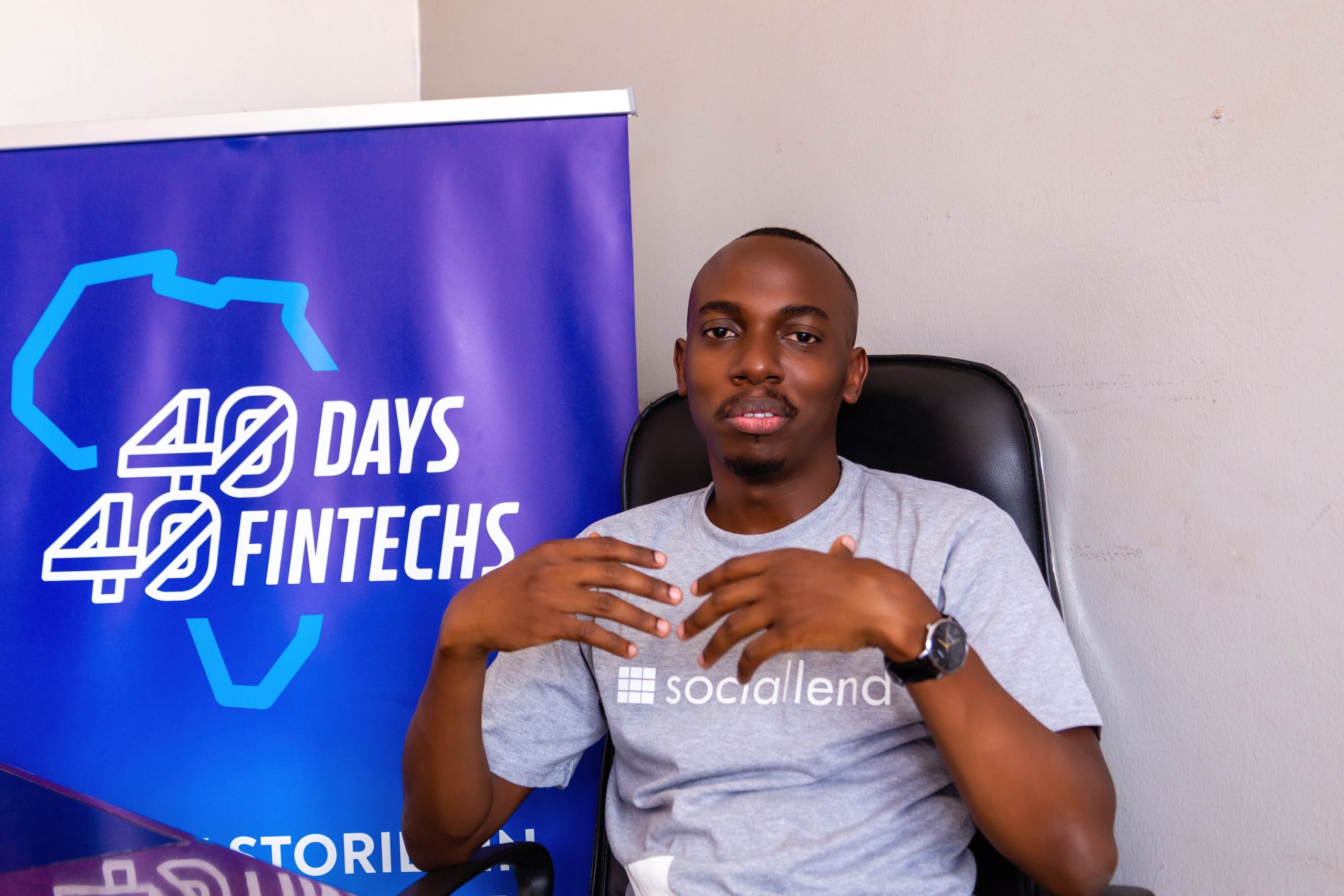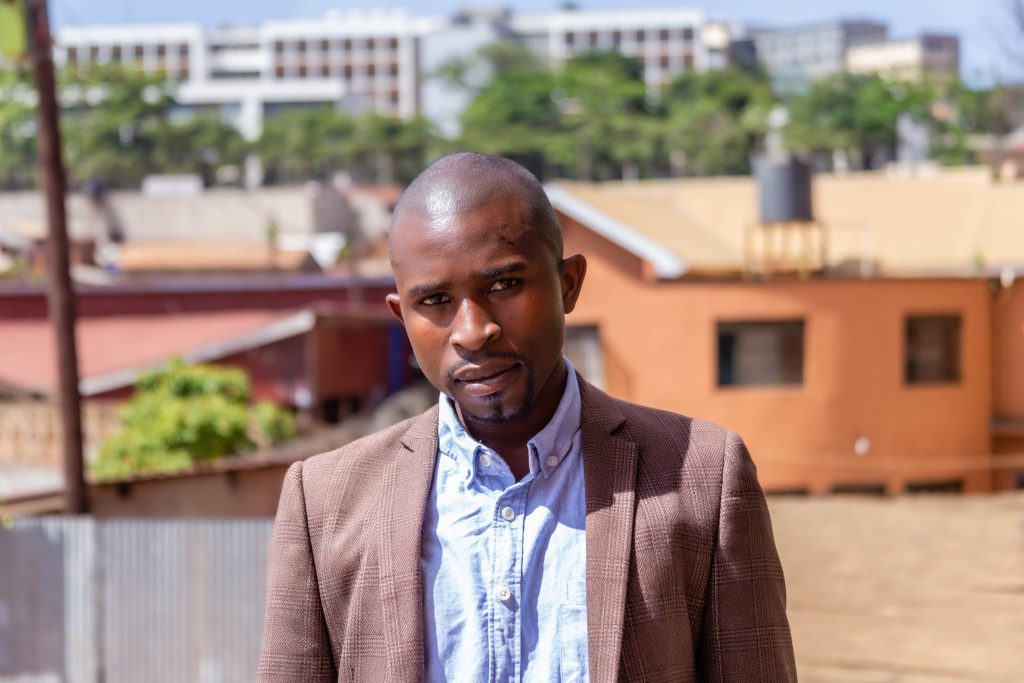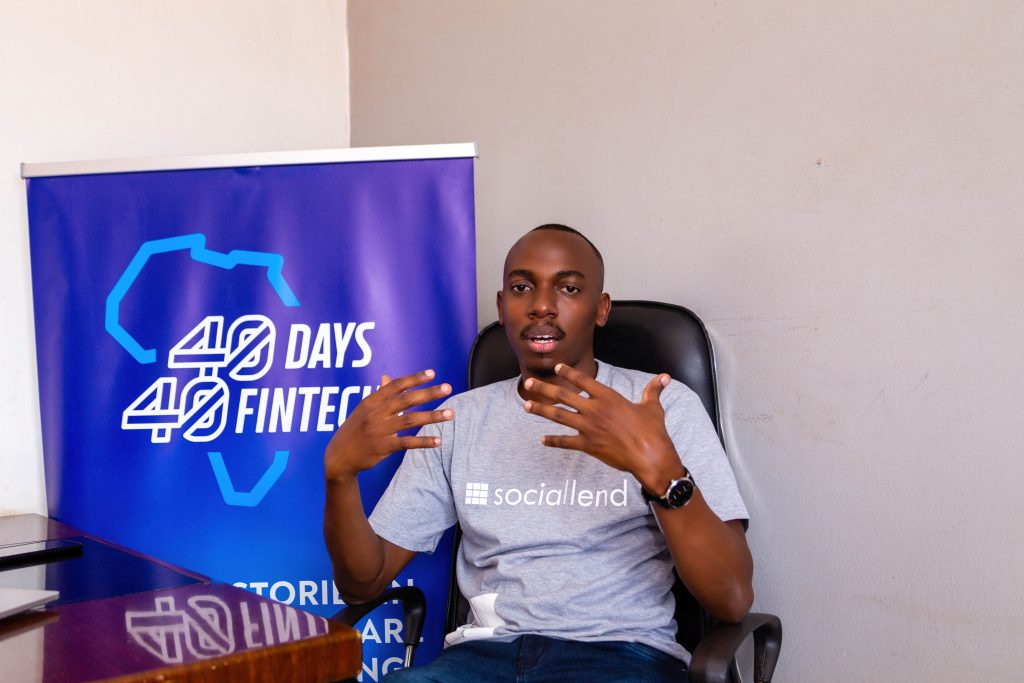Social Lend Africa is using Technology to connect Borrowers to Lenders. #40Days40FinTechs Season 4 Day 17

For any businessman, anyone who can provide them with quick and cheap credit will definitely be their friend.
So, when Edward Mubangizi was introduced to Social Lend Africa, he saw it as a good opportunity to improve his supermarket business in Kisaasi.
“My friend told me that their financial services are friendly. I checked them out and downloaded their mobile Application. They requested to visit my businesses and they did it. They took a record of my stock and everything. The next step was asking me for the amount that I required,” he recalls.

Since then, Mubangizi has used the Social Lend platform without any challenges.
According to Marvin Peter Akankwasa, the CEO of Social Lend Africa Tech Limited, they came up with this digital lending peer-to-peer business marketplace to create a meeting point for lenders and borrowers.
“On one hand, we have borrowers who lack access to formal funding while on the other hand, we have lenders who lack operational processes to streamline their lending operations,” he says.
Akankwasa argues that at least 23 percent of the 1.5 million small businesses in Uganda are unable to access formal funding from financial institutions like banks.
“We have lenders who are engaged in predatory lending processes and lend with interest of up to 50 percent monthly,” he says.
Social Lend Africa brings different stakeholders together to create an equitable platform where both lenders and borrowers can get a fair deal.
“Borrowers get to borrow at affordable rates from 3 percent to 5 percent because most of their businesses, according to our survey, show that they don’t make more than 45% in their profit margin. Lenders get to enjoy our technology which analyses borrowers and scores them using smart algorithms so that they lend their money safely and profitably,” he says.
For a borrower to qualify, they must submit their contact and other Know Your Customer (KYC) information such as bio-data, national ID, and location.
“For businesses, we also take proof of business, ownership of the business, tax clearance certificates, and other compliance requirements,” Akankwasa says.
For lenders, all they need is proof of source of funds [is it employment or business].
“They don’t need a license to lend because we are already licensed to do that,” he says.
Akankwasa reveals that they have managed to put together a network of over 50 lenders and micro-lenders.

“We have reviewed over 3,000 loan applications and approved over 85 percent of them. We have also managed to get more than 900 downloads of the APP,” he says.
Akankwasa says that since they rely a lot on third-party aggregators who operate commission-based models, they are sometimes charged much more than they would love to.
“Some go as high as 3 percent. If a borrower is paying back about Shs 1m, then, they have to top up Shs 30,000 which makes using the platform incredibly expensive,” he says.
He is however happy that the 40 Days 40 FinTechs initiative is introducing a better community streamlining payments and making them cheaper and affordable for end-users.
Social Lend Africa is the 17th participant in Season Four of the 40 Days 40 FinTechs initiative organized by HiPipo to shine a light on emerging stories changing lives using financial technology.
This initiative is run by HiPipo in partnership with the Level One Project, Mojaloop Foundation, INFITX, Cyberplc Academy, Crosslake Technologies, and Ideation Corner with generous support from the Bill and Melinda Gates Foundation.
Life-changing stories from more than 100 FinTechs have been highlighted by this initiative in the past three years.
